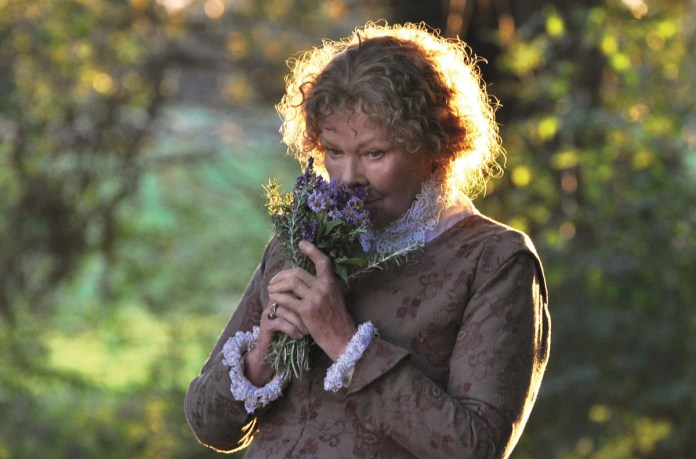For a man who has spent his life embodying Shakespeare’s characters, it’s fitting that Kenneth Branagh’s latest venture is to tackle the Bard himself. Branagh, arguably the definitive Shakespearean actor of his generation, inhabits the writer wandering into the jaws of retirement after the fiery destruction of his London theatre, The Globe.
The thrust of the film is the delayed mourning of Shakespeare for his son, Hamnet, who died some seventeen years previously. The Bard’s family treat him with a degree of scepticism; more like a stranger than a returning father. William busies himself by creating a garden for Hamnet, hoping that this can bring him closer to his son and that he can achieve some degree of closure.
Penned by Ben Elton, All Is True shows flashes of poignancy, but is occasionally undermined by a script which can lack nuance and feel jarringly on-the-nose. Though Branagh brings characteristic depth to his performance, one which is often told solely through the eyes, it often feels uncomfortably brusque, relying too heavily on thick exposition and grandstanding arguments.

Branagh’s directing puts nature in the forefront. The transitional garden leaning into a comment on the changing phases of life. William is entering the autumn of his years, with the promise of summer fading behind him. At its best, All Is True perceptively discusses the ups and downs of a life lived.
The introduction of the Earl of Southampton (a thoroughly regal Sir Ian McKellen) gifts the film its finest scene. A fireside discussion of Shakespeare’s career; complete with his successes and regrets, provides a wistful centrepiece. There are times when Shakespeare is forced to accept compliments bashfully, yet here it feels more emotive and impactful. In a film which seeks to get under the skin of the great storyteller, this segment successfully captures the ordinary impulses within Shakespeare’s extraordinary character.


A supporting turn by Dame Judi Dench (as Anne Hathaway) offers another ballast on which the film is supported. Equally satisfying is that the trappings of Jacobean England are captured very well. Even if the film dances the line between fact and fiction, the production design and texture feel authentic.
All Is True has moments of real depth and offers an intriguing look at the human side of Shakespeare. This said, It does sometimes struggle with the heavier emotional lifting and is best played out in the understated moments. A flawed look at a colossal figure, Branagh’s film is still a thoroughly thoughtful period piece.









